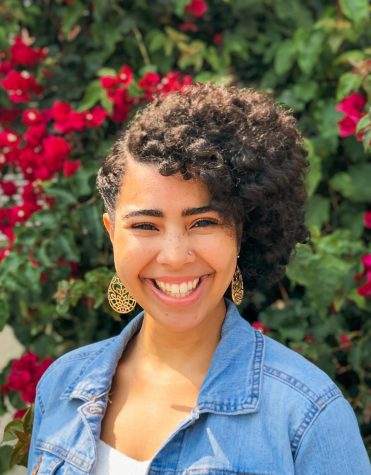This article was originally published on March 5 at 6:33 p.m., but was updated on March 9 at 3:20 p.m. with new information.
“Women were the last disciples at the cross and the first at the empty tomb,” writes Catherine Groeger of Christianity Today.
Women were also the first evangelists, as they were the first to see our risen Lord and tell others about his resurrection. Since the beginning, women have played a crucial role in the early church, evangelism and theological movements throughout history. Especially in light of March being Women’s History Month, they should be recognized and celebrated.
SEXISM AND THE PATRIARCHY
There are several key passages that are most referenced when it comes to teaching on “biblical manhood” and “biblical womanhood”—namely, verses in 1 Corinthians 14, Colossians 3 and 1 Timothy 2. Interpretations of Scripture vary on the degree of spiritual authority God has given to women. But Paul’s calls for the “submission” of women and for them to be silent in church have been used to abuse women both in and outside of the Christian faith for centuries.
Additionally, many prominent early “Church Fathers” held deeply unbiblical beliefs about women, and similarly misogynistic ideals are held about women by prominent male leaders now. No matter their cultural context, it is not uncommon for women to be discouraged and barred from seeking deeper biblical knowledge and positions of authority in the church. Nevertheless, women have pushed back and persevered, revolutionizing the worlds of theology and church history.
WOMEN OF FAITH
Florence Nightingale was one such woman who lived in faithful obedience to God’s calling for her life. Despite growing up in Italian society during the 1800s, Nightingale heard God call her to a future of “service” when she was 17. This led her to the Crimean War, where she served as a nurse in the first hospital run by women. Nightingale is an inspiring figure to all women, but especially to those of the Christian faith. She obeyed God when he called her to a life of service and demonstrated a posture of servitude that we should all strive for.
When Melania the Elder’s husband and two sons died, Melania the Elder decided to travel from Rome to the East, where she began pursuing Christianity. Unlike many who took part in the monastic movement of the time, Melania the Elder did not denounce her wealth in the name of bodily denial. Instead, she used it to provide for those in need, including persecuted Christians. Melania the Elder is said to have fed 5000 people in three days. She later built a monastery on the Mount of Olives and drew many people to faith.
Hailing from Ghana, Mercy Amba Oduyoye is known as the “mother of African women’s theologies.” Her life experiences surrounding the fall of apartheid and Ghana’s independence from Britain shaped her desire to seek and create spaces for women’s voices to be thoroughly represented in all spheres of life. She is a prominent leader in the ecumenical movement and champions teaching theology from the perspective of African women, and other women from developing nations.
WE CAN ALL LEARN FROM THE WOMEN WHO HAVE GONE BEFORE US
It is essential we learn about these women so that we may be taught through their experiences. Our school curriculums have been oversaturated with texts written by and about men, thus leaving us without examples of women to aspire after. Although the Bible does celebrate women of faith, Biola does not adequately reflect that posture.
Students in the Torrey Honors College will only read a few books written by women during their four years at Biola. Biola’s administration is another poor reflection of women in leadership, as Provost and Senior Vice President Deborah Taylor is the currently the only woman on the President’s Cabinet.
It is not enough to designate a month to celebrate women if the next eleven months are spent continuing to overlook them. Calls for equality are not demands to raise women over men. This is simply a request to shine a brighter light on the Christian women we all—women and men—can learn from. If we have room to listen to the wise voices of Martin Luther and Saint Augustine, then we can also make room to listen to phenomenal women like Corrie Ten Boom and Faltonia Betitia Proba.













